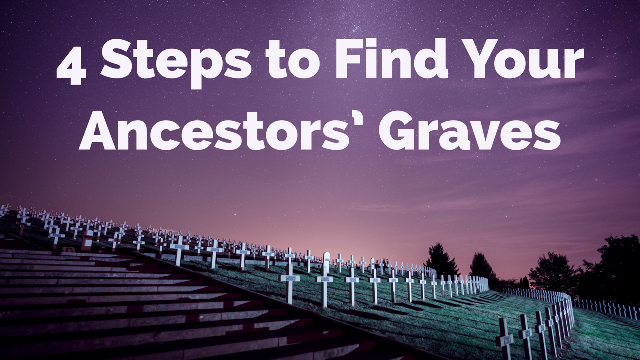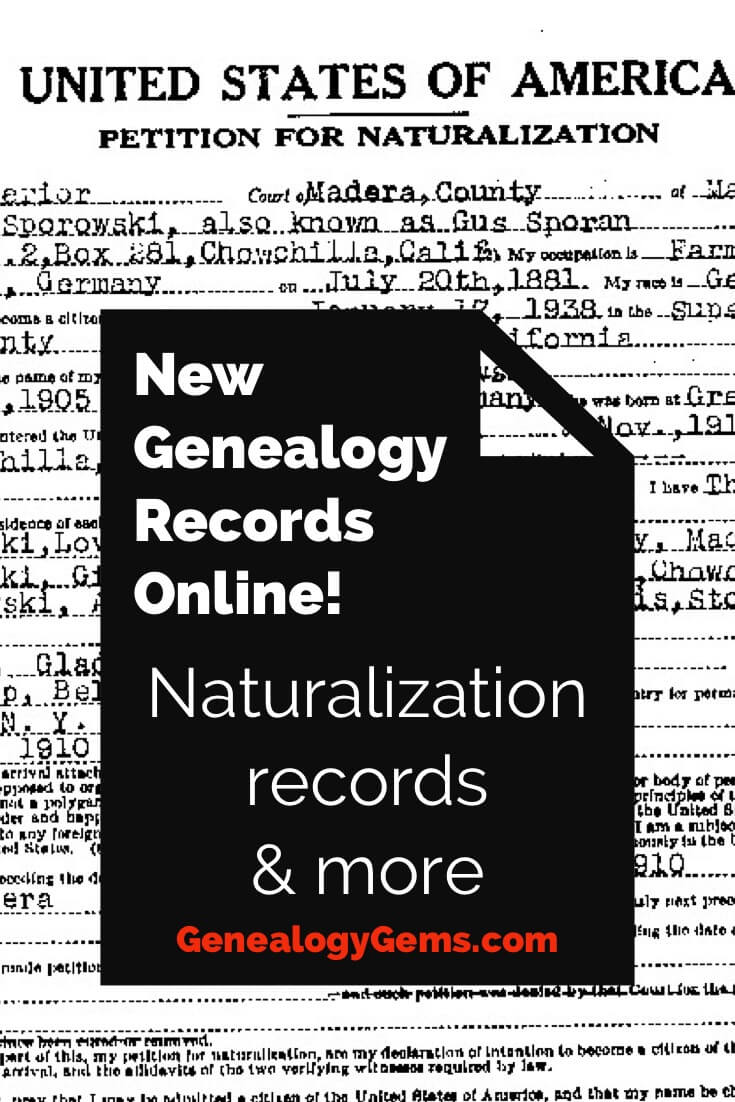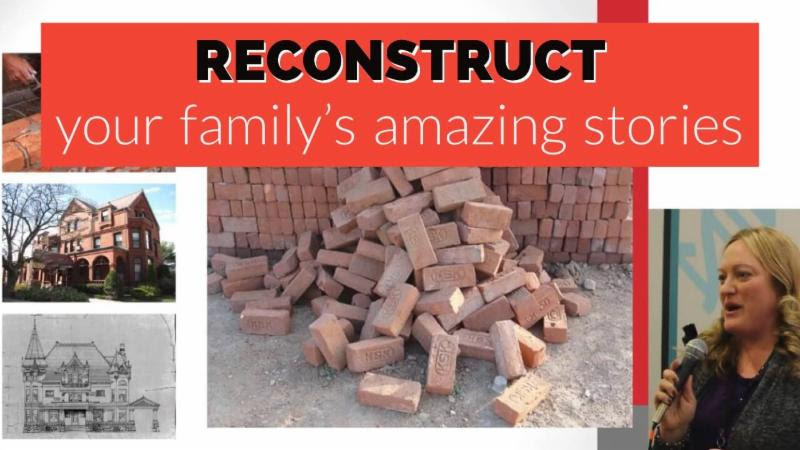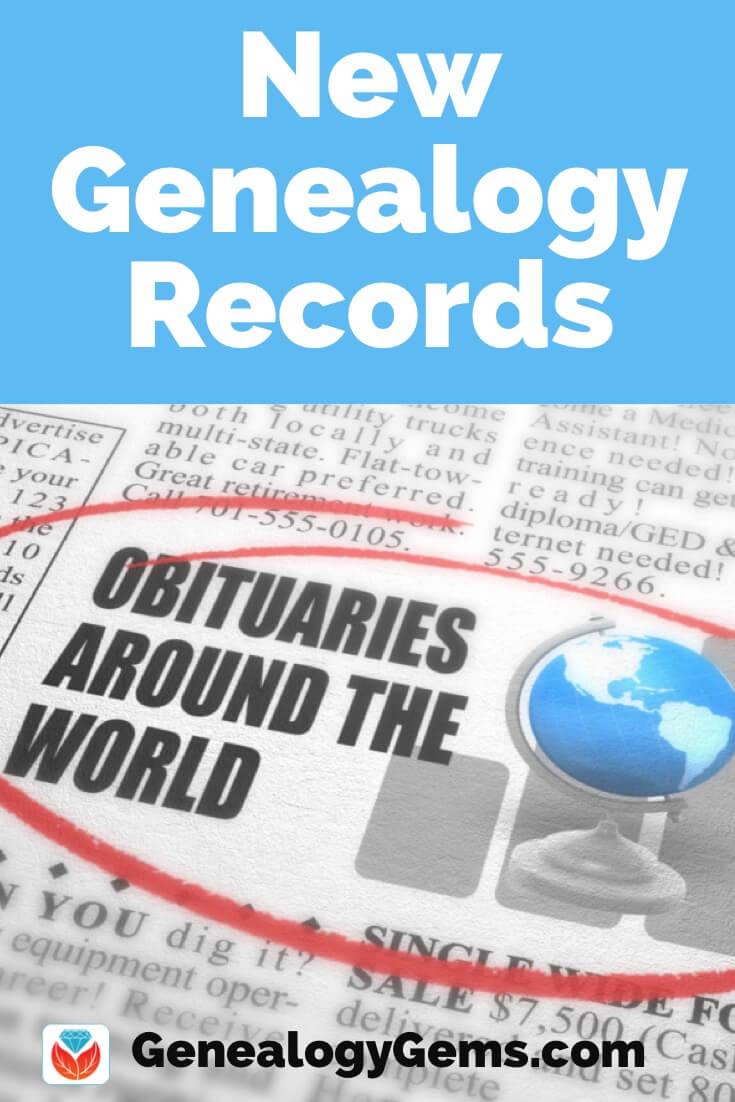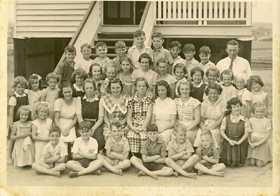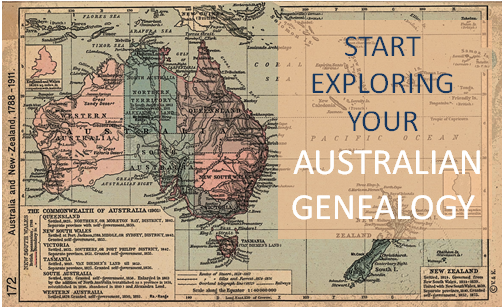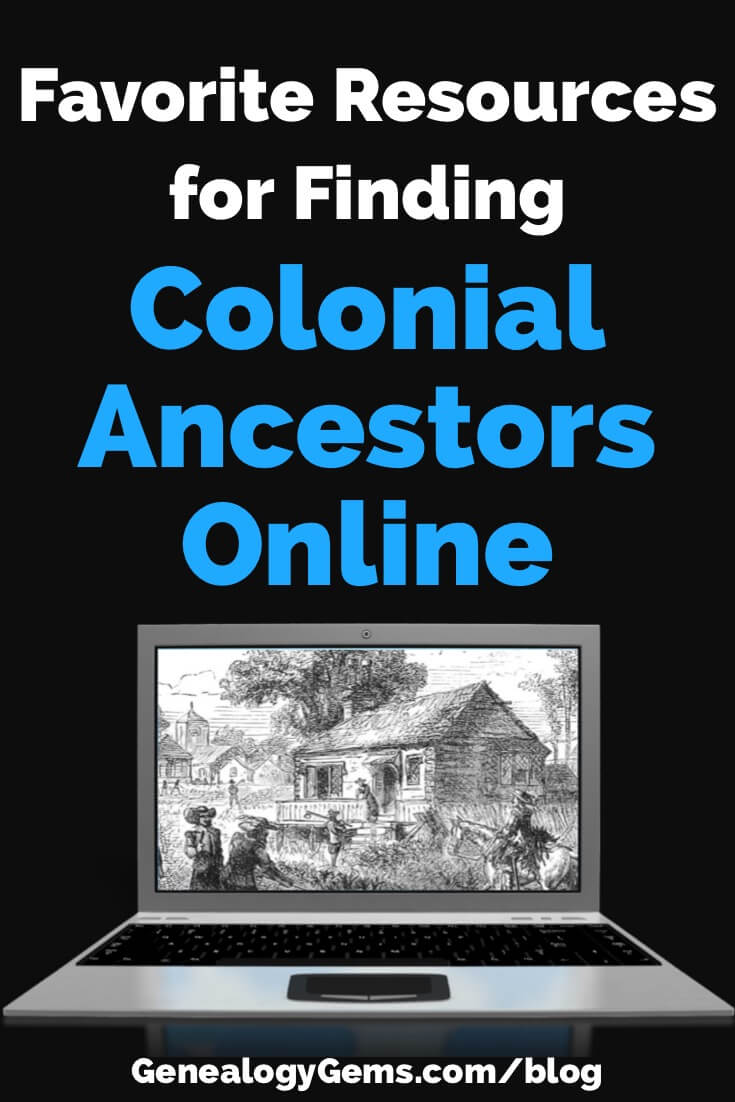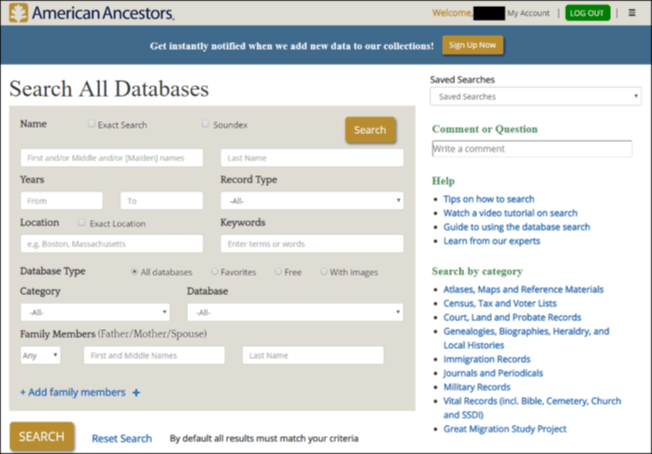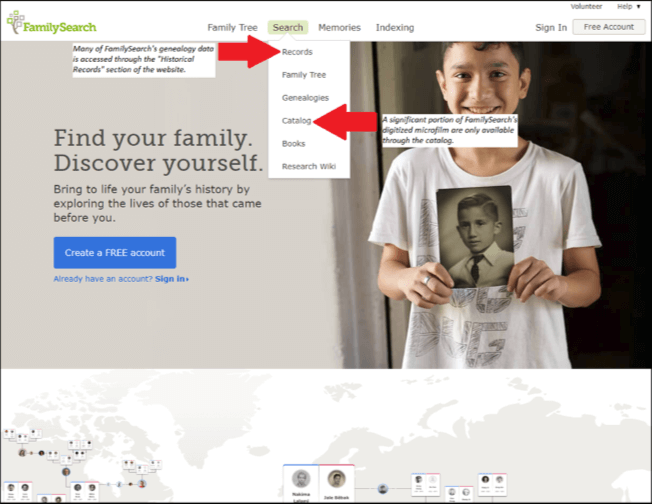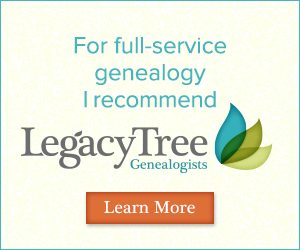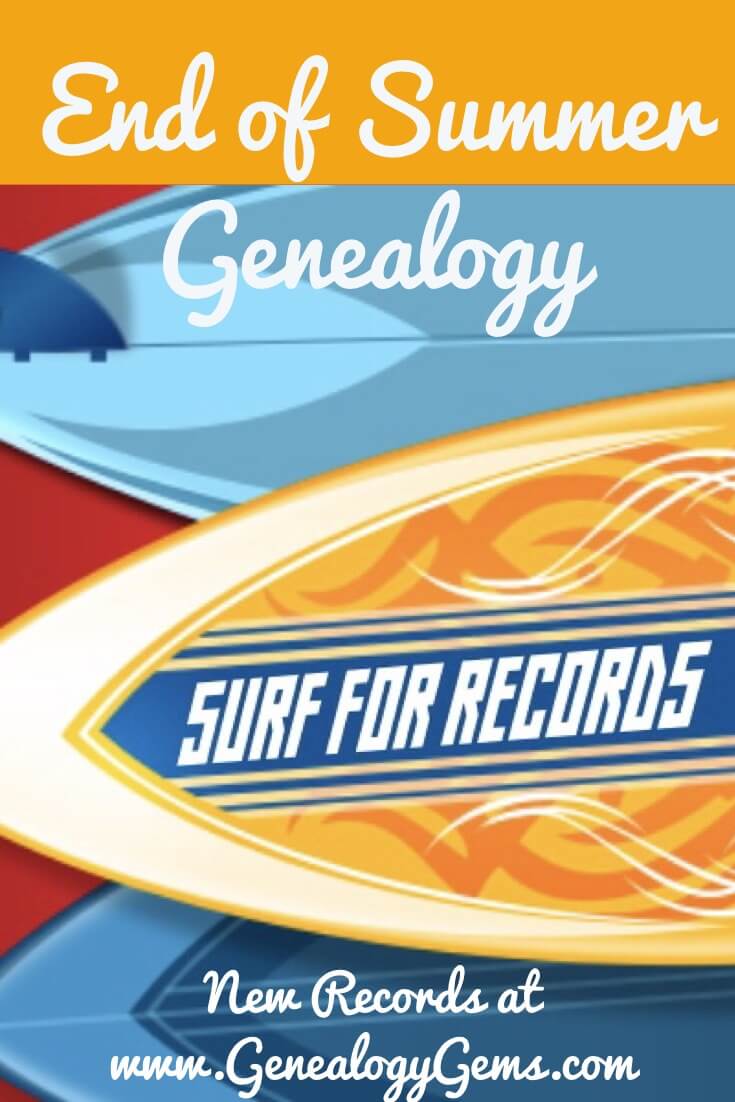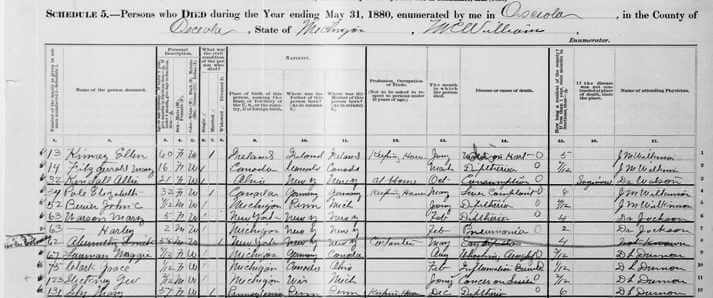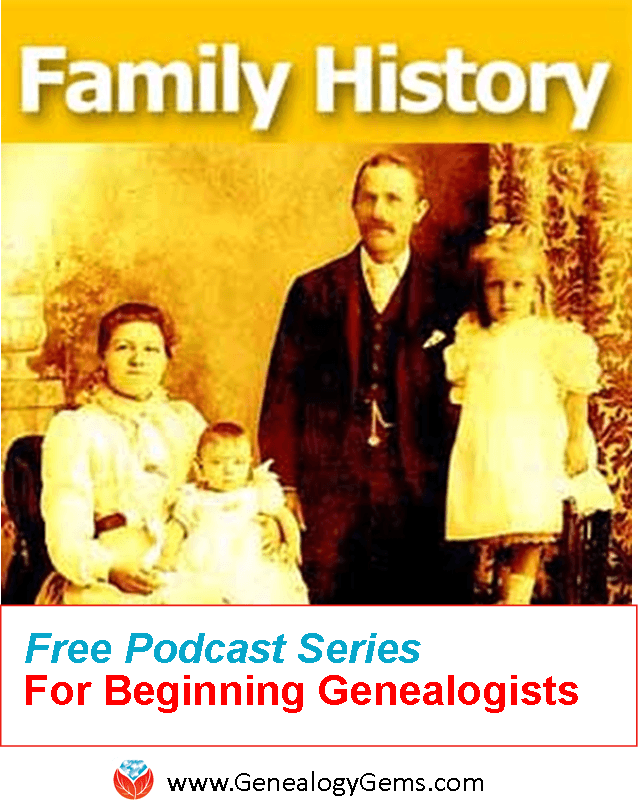U.S. Cemetery Records & More New Online
Find your ancestors in U.S. cemetery records and more in these week’s roundup of new records available online. All resources below come from free websites and also include vital records, court records, county records, and various historical collections. If you’re researching Jewish ancestors, be sure to check out a wonderful free Jewish collections website for resources and databases.
New U.S. Records Free at FamilySearch
FamilySearch has several new U.S. records collections online now. They may be small, but your ancestor just might be lurking in these indexes!
Arizona, Gila County, Cemetery Records, 1927-1994. Browse 3,500 records in this collection of cemetery records from the Dudleyville, Ft. Grant, Mammoth, Superior, Ray, and Hayden cemeteries in Gila County, Arizona. These records may tell you the name of your ancestor, birthplace and date, death date, parents’ names, children and spouse names, and even sibling names.
Idaho, Madison County Records. There are 2,300 indexed records in this new collection, as well as 34,000 browsable images. In this collection you’ll find vital records, homesteads, patents, deeds, mining records, and Wills and probate records.
Tennessee, Jackson County Records, 1801-1974. Marriage records and records of the Chancery and Circuit Courts are available in this new collection of nearly 14,000 indexed records and 18,000 images. This collection is being published as images become available.
Florida, Index to Alien Arrivals by Airplane at Miami, 1930-1942. This unique collection has 51,000 indexed airplane manifests. The collection is set up by index cards, arranged alphabetically by surname. These records correspond with NARA publication A3382 and were filmed at the NARA facility in College Park, Maryland.
Virginia, County Marriage Records, 1771-1943. Browse almost 40,000 indexed marriage records and images in this collection. The records include registers, bonds, licenses, and returns for the following counties: Accomack, Franklin, Giles, Rockingham, and Westmoreland. The content and time period varies by county.
Jewish Records & Collections
FamilySearch also has a new collection of Virginia, Jewish Cemetery Records Index, ca. 1800-1986. Included is an index to maps 1-45 of the Jewish cemetery records compiled by Samuel and Dorothy Werth. The original maps are located at the Virginia Historical Society. These cemetery records may be able to tell you the name of deceased, their year of birth, year of death, the name of the cemetery, and the city where the cemetery is located.
Another great resource for finding Jewish ancestors is the Jewish Digital Collections website. You can explore an annotated list of more than 350 sites containing digitized collections of Jewish history, records, culture, and more. The list is divided into 22 categories, which are alphabetized into drop-down menus. You may also be interested in their Jewish Studies Guides, which have been prepared by university librarians worldwide to help students taking courses in Jewish studies. They may lead you to additional resources and materials.
More to learn about cemetery records
Cemetery research is a crucial family history skill. Tombstones are monuments to our ancestors’ lives and may have key genealogical clues engraved in the stone. Learn more about how to find them with these four steps to finding your ancestors’ burial places and the records that complement them.
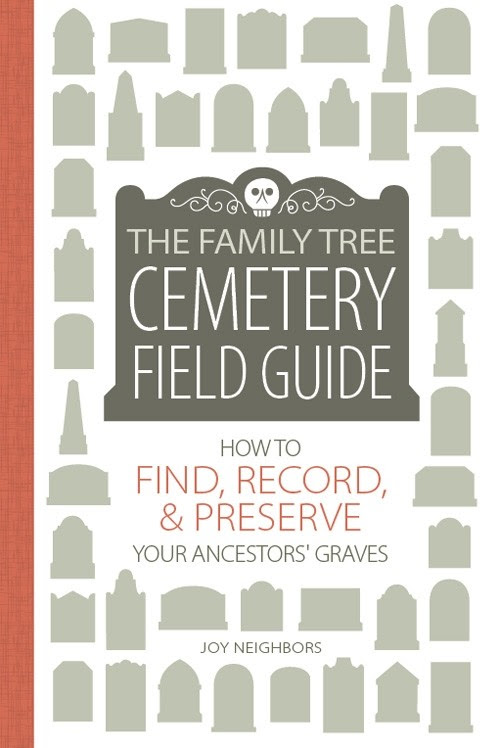 For a comprehensive guide on finding your ancestors in cemeteries, grab a copy of The Family Tree Cemetery Field Guide. This book contains detailed step-by-step instructions for using FindAGrave and BillionsGraves, plus guides for understanding tombstone epitaphs and symbol meanings. Discover tools for locating tombstones, tips for traipsing through cemeteries, an at-a-glance guide to frequently used gravestone icons, and practical strategies for on-the-ground research. Click here to order yours today!
For a comprehensive guide on finding your ancestors in cemeteries, grab a copy of The Family Tree Cemetery Field Guide. This book contains detailed step-by-step instructions for using FindAGrave and BillionsGraves, plus guides for understanding tombstone epitaphs and symbol meanings. Discover tools for locating tombstones, tips for traipsing through cemeteries, an at-a-glance guide to frequently used gravestone icons, and practical strategies for on-the-ground research. Click here to order yours today!

Lacey Cooke
Lacey has been working with Genealogy Gems since the company’s inception in 2007. Now, as the full-time manager of Genealogy Gems, she creates the free weekly newsletter, writes blogs, coordinates live events, and collaborates on new product development. No stranger to working with dead people, Lacey holds a degree in Forensic Anthropology, and is passionate about criminal justice and investigative techniques. She is the proud dog mom of Renly the corgi.
Disclosure: This article contains affiliate links and Genealogy Gems will be compensated if you make a purchase after clicking on these links (at no additional cost to you). Thank you for supporting Genealogy Gems!



